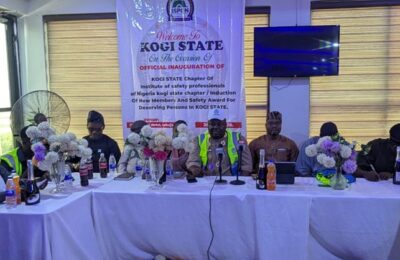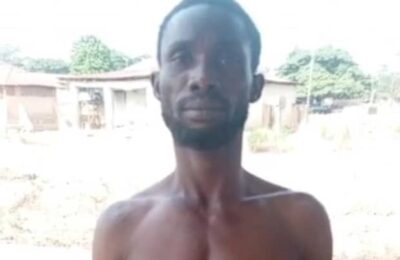President Bola Ahmed Tinubu has laid out a big ambition for Nigeria: to grow the economy to $1 trillion. It is an inspiring vision and one that, if achieved, would place Nigeria among the world’s largest economies. But visions only matter when grounded in the realities of the people. And the hard truth today is this: no amount of policy talk or economic planning will deliver real growth unless Nigeria gets a grip on its security crisis.
Insecurity is not a northern problem or a rural problem; it is a national economic threat. From kidnapping on highways to banditry in farming communities and crude oil theft in the Niger Delta, insecurity is choking livelihoods, driving away investors, and destroying confidence. A nation where farmers cannot go to their farms, where children miss school due to fear, and where businesses spend more on private security than innovation, cannot grow, let alone transform.
So, before we talk about digital infrastructure or investor confidence, we must ask: can Nigerians live, work, and trade in peace?
SECURITY AS ECONOMIC INFRASTRUCTURE
Economic progress does not begin with GDP figures or investor summits, it begins with people feeling safe. No serious investor will bet on a country that cannot secure its own streets. No farmer will risk cultivating land in areas plagued by abductions. Security is the first and most important form of infrastructure.
The Tinubu administration must make national security a tool for economic recovery, not just a military concern. This means embracing technology, including, but not limited to drones, satellite surveillance, and AI-based threat detection. It also means legalizing state policing so that communities are protected by people who understand their terrain. Importantly, young people living in violence-prone areas must be offered real alternatives, such as skills, jobs, and hope.
FIXING THE OIL SECTOR: STOP THE BLEEDING
Oil still funds much of Nigeria’s budget, but the sector is bleeding daily. Billions are lost to pipeline vandalism, crude theft, and inefficiencies. If we cannot secure our most strategic national asset, how can we fund development?
We need to move from paper policies to action. Oil production and sales must be transparently tracked using digital tools, including blockchain. The Petroleum Industry Act must be fully implemented, not selectively applied. Local communities, especially in the Niger Delta, must be brought into the security framework. Joint military-private task forces should be formed to protect our infrastructure and build trust.
While oil remains important, Nigeria cannot build its future on a finite resource. Diversification is not just a slogan, it must be a national movement.
Agriculture, for example, holds enormous potential, but only if rural insecurity is addressed. We must invest in mechanization, irrigation, and agro-processing, while ensuring that farmers can operate without fear. Technology is another frontier. We should be building hubs that support young Nigerian innovators, not chasing them overseas.
We must also take advantage of the AfCFTA to position Nigeria as a regional manufacturing power. And let us not forget the creative industries, including music, film, and fashion, which are already selling Nigeria to the world. They need formal structures, legal protections, and financing, and not just presidential or government applause.
THE INFRASTRUCTURE THAT ENABLES GROWTH
The Tinubu government must prioritize energy reforms, from full metering to decentralized mini-grids. Roads, ports, and rails cannot be left to budget cycles alone. Let private investors, including the Nigerian diaspora, play a role through partnerships and bonds. To bring in capital, Nigeria must be a place where investors can plan for the future without fear of policy somersaults. That means simplifying taxes, registering businesses quickly, respecting contracts, and providing stable forex policies. Diaspora and foreign investors want more than just incentives, the appreciate legal certainty. At the same time, Nigerians at home must feel the economy is working for them. When a market woman sees prices rising but hears talk of trillion-dollar targets, the disconnect grows. Growth must be tangible: good jobs, improved wages, and a safer environment.
OUR PEOPLE ARE THE REAL ECONOMY
No nation can grow when its people are unhealthy, unskilled, or underprepared. Human capital development is not a luxury; it is the engine of productivity. In fact, our education system needs overhaul, with a new emphasis on practical skills, science, and technology. Healthcare must be strengthened to reverse the brain drain and increase worker productivity. And yes, the poor must be protected. They must be allowed to breathe, just as President Tinubu averred. Conditional cash transfers, if well-targeted and transparent, can help households stay afloat and contribute to local demand.
GOVERNANCE AND LEADERSHIP
At the heart of it all is leadership. Fighting corruption, enforcing public accountability, and ensuring budget discipline should not be seen as ethical choices, but economic necessities. While the president himself must lead these necessities from the front, governmental institutions must also be strengthened to outlast any administration. The Economic and Financial Crimes Commission (EFCC) and the Independent Corrupt Practices Commission (ICPC), for instance, must have the autonomy and resources to act. More so, public procurement should be digitized and made available to all and sundry. Similarly, federal allocations should be guided by performance and not by ‘padi padi’ politics.
LET THE STATES DRIVE
A $1 trillion economy cannot be built from Abuja alone. State governments must not be made bystanders, they would be better off as partners of growth. That means practicing true fiscal federalism and allowing states to unlock their own potential, whether in mining, agriculture, or regional trade. States should be rewarded for innovation and performance, and encouraged to collaborate across regions.
FINAL REFLECTIONS
President Tinubu’s vision is bold but achievable. However, it will require clarity of purpose, political courage, and a deep understanding that economic growth and national security are two sides of the same coin.
I must also commend General Christopher Musa, Nigeria’s Chief of Defence Staff, for his steady leadership in these times. His strategic focus reminds us that securing Nigeria is not just about force, it is about foresight, unity, and nation-building.
The world is watching. Nigerians are watching. The opportunity is real, but so is the urgency. If we do not act decisively now, we risk falling even further behind.
May the president and his team rise to the challenge. The work ahead is immense, but so is the reward.
– Seyi Babaeko
MD/CEO, Absolute Security and Advance Protocol Ltd.




